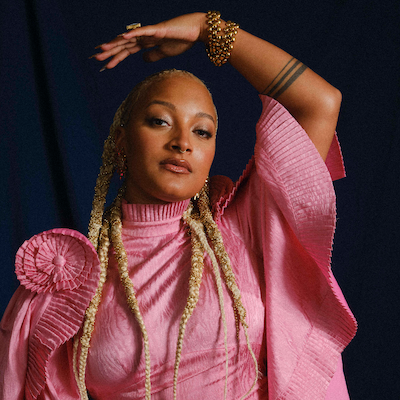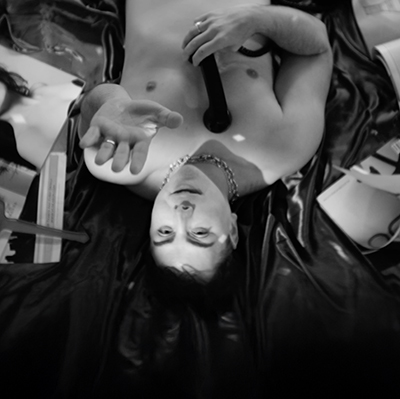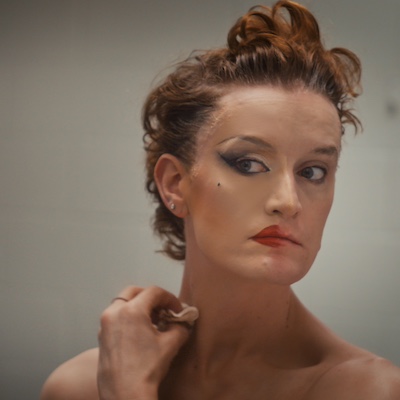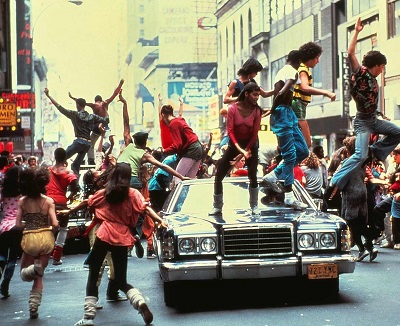
"Leroy's introductory audition scene is one of the filthiest dance sequences ever committed to celluloid"
Fame! Oh, that theme tune, that star-jump cry from my youth. When I was ten years old the TV show of Fame won my heart. It won my soul. I waited avidly for every episode and sat rapt in front of the telly. I wanted to go to that goddamn School of Performing Arts so bad. I bought the records and played and played them. I even had a Fame brand (but probably knock off) sweatshirt and skirt. And I wore cheap leg warmers that would always end up around my feet. That was delightful when it rained.
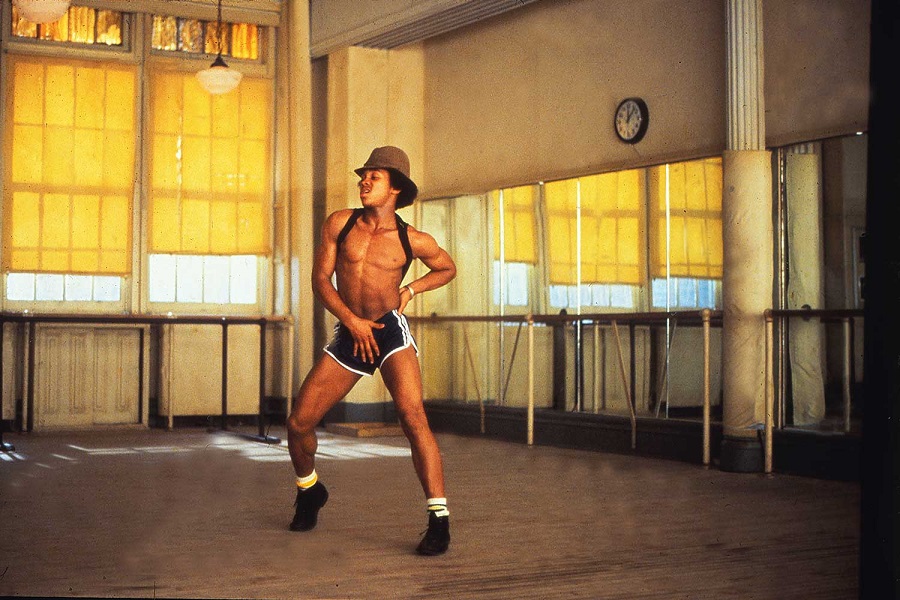
At some point around those early years of the series I saw the film and was deeply shocked at how raw, how real it was. In my little kid mind the series was gritty (it dealt, after all, with dieting for one episode til you fainted, uppers, guns, your teacher going to the same audition as you. You know, all of life’s pain). But the film? It’s bleak, man. You have abortion, child rape, the casting couch. And its shot in that verité, New Hollywood style that was in full swing in the 70s (the film is from 1980). And it’s still shockingly real.
The BFI screened the film of Fame as part of its Black Star season and also through its Flare (LGBT) strand. Showcasing Gene Anthony Ray as Leroy (who is black, plays straight in the film but was gay irl), even though the film is an ensemble piece, Ray was undoubtedly the S.T.A.R. He was rough around the edges as far as acting was concerned but he had charisma for days and his introductory audition scene is one of the filthiest dance sequences ever committed to celluloid. He was beautiful, he was tragic. He is one of our true, queer icons.
Oh and, Fun Fact: there’s a blink or you’ll miss it appearance by a baby Isaac Mizrahi as one of the auditioning students.
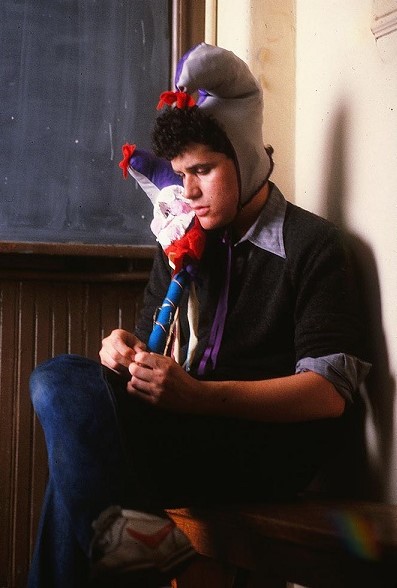
Because of how the world now works I am facebook friends with one of my childhood crushes who was my fave character in Fame. I wish I could go to my fragile little ten year old self and say, ‘you will not be able to understand how this will happen – just know it’s cuz The Future – but you will be friends with Lee Curreri aka Bruno.’ And I would swoon and pull up my baggy legwarmers and swoon some more with wet eyes. Because when I was ten (and for the few years afterwards that the show ran) I lived for Fame. (And Dynasty, but that’s another story).
I wanted to be a nearly star (and a star). That fantasy was my escape from my crappy life. The dirty glamour of tryingtomakeit was as enticing to me as the life of a star. It always has been. I love that bit in a biography just before they Make It. On the verge, on the edge of it all… ‘It’ is just around the corner. And that’s what Fame is all about, that hope that where you are heading to is… it.

Back to Lee. He plays Bruno in both the film and the series. Bruno (sigh) was a curly-headed electronica genius, usually dressed in plaid, usually composing something that pissed off old-school music teacher Mr Ooooh Sho-Sho-Sho-Shorofsky (Albert Hague, who also wrote the music for The Grinch Who Stole Christmas, btw). I loved Bruno, big time. Like most of the TV show characters, Bruno didn’t really have a sexuality but did sometimes moon after one of the girls whilst they sang a song. So, I hated them for that song. In the movie, it hints at Bruno falling for Coco. I asked Lee for clarification. Yes, he’s suffering from unrequited love for Coco. But Coco loves only Coco. Because she’s focused on Making It.
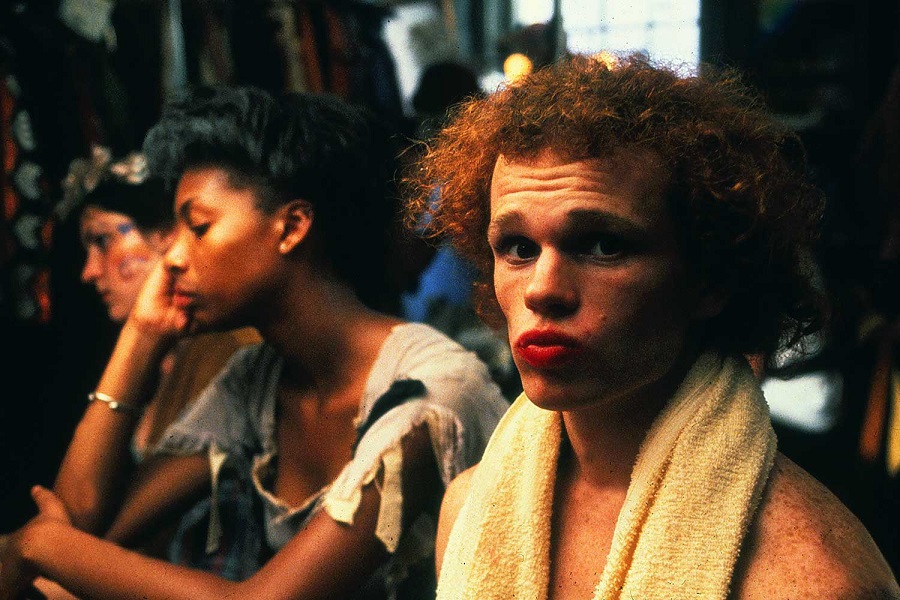
And because none of the characters had much of a sexuality in the show, Montgomery is just another kid in the school, The Ginger One. In the film he’s one of the most poignant and moving characters, and not just because he’s gay. His sadness and the sense of alternate family he (and the others) find amongst their peers is beautifully and subtly played by Paul McCrane in the movie. In a conversation I had with Lee I mentioned how the film was much more life compared to the toned down TV series. ‘Right,’ he said, ‘the TV show was a Hallmark Card. They had to take away Montgomery’s gayness and then they didn’t know what to do with the character. They were so scared of everything back then. I used to drag my wardrobe down the alley so it didn’t always look brand spanking new, then they would run to replace everything with clean clothes again.’ No wonder those plaid shirts always had ironed creases in them…
‘Imagine if they had been just slightly controversial,’ Lee pondered. ‘They would have gotten some real ratings! How silly – a show about a performing arts school with no out people! I liked the Executive Producer a lot but they were so scared of NBC and Standards and Practices. It was largely self-censorship.’ And when I think of other shows of the time that I watched – for instance, Cagney and Lacey, and thinking of Steven, The Gay on Dynasty – I do wonder whether Fame-the-show could have had an openly gay character. Or at least have hinted at it?
But the film came first and was for a different audience. ‘Yes,’ agreed Lee, ‘[the show] was definitely for young kids and the movie was “R”.’
But, beyond the grit, the movie is also as uplifting and musically glorious as the TV show was. The music is amazing. Coco has an incredible ballad (Out Here On My Own) and, of course, there’s the dancing-in-the-street title number. But for me the stand out tune is the first one. Seemingly spontaneous (but everyone knows the words), in the dining hall a jam breaks out with Leroy dancing, Coco singing and Bruno pounding a piano. ‘Hot Lunch’ starts, ‘shady Sadie. Serving Lady’ and is about the dinner lady dishing out her chilli and beans. The closing number, the odd ‘I Sing The Body Electric’, is the rousing song for their graduation show. And I was delighted that a row of forty-something gays in front of me in the cinema, who’d been grinning and grooving in their seats for the entire film, clapped along with the weird-brilliance of the song and all through the title sequence. It seems that, for gays of a certain age, Fame is a life-long crush. It does promise, after all, that we’re gonna live forever. We’re gonna learn how to fly, high!
Review by Fallon Gold



